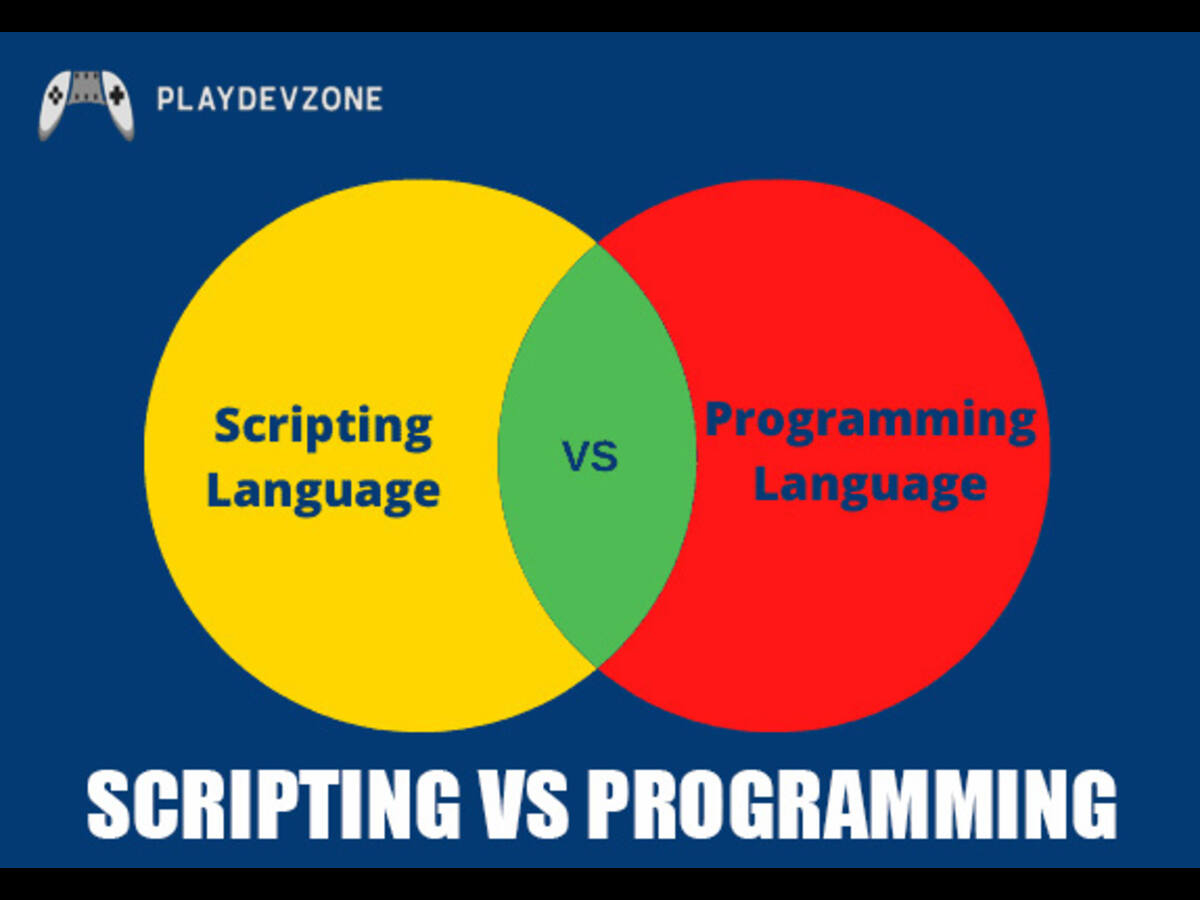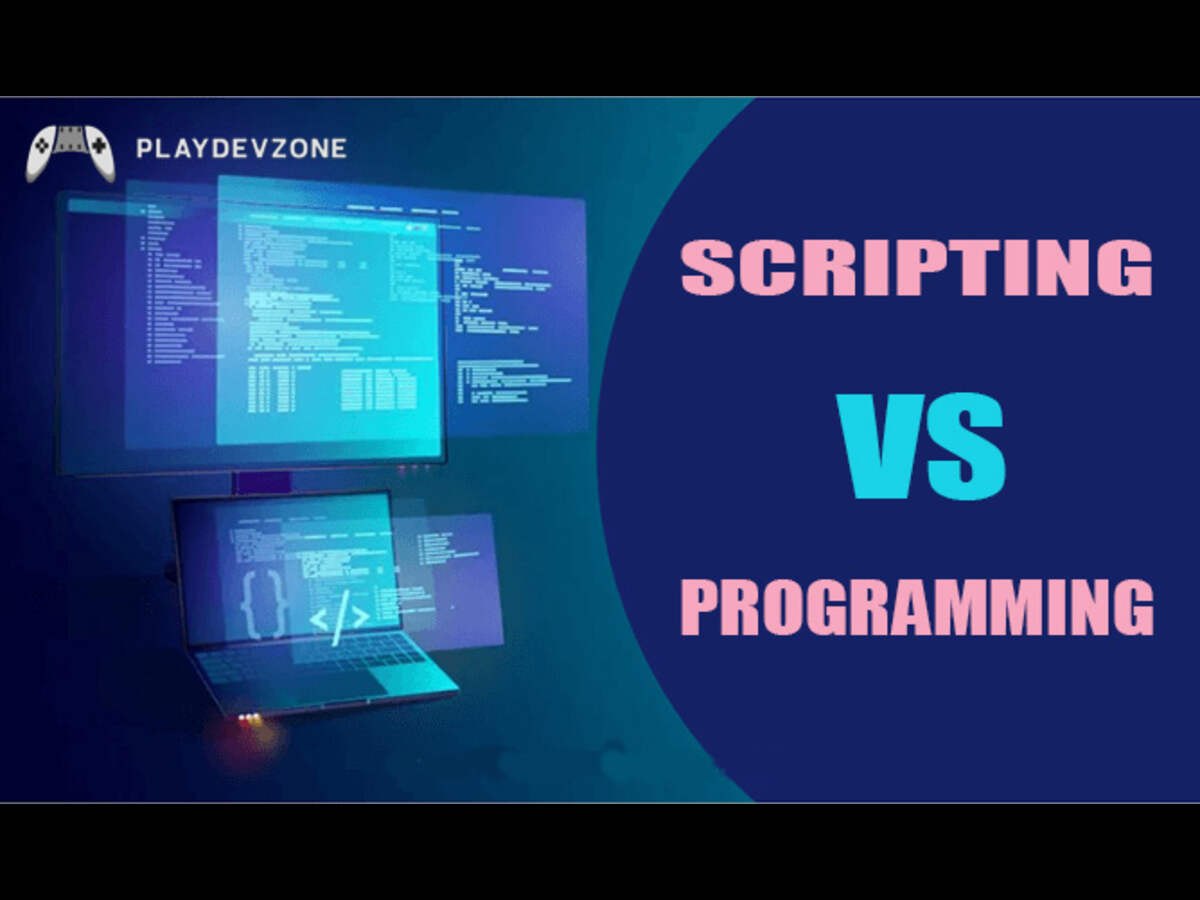Introduction
In the world of software development, terms like scripting language and programming language are often used interchangeably, but are they the same?
If you've ever wondered what sets them apart or which one is better suited for your next tech project, you're not alone (Scripting VS Programming Language).
Understanding the key differences between scripting and programming languages is essential for developers, IT students, and tech enthusiasts alike.

In this article, we'll break down the core distinctions, use cases, and examples of scripting vs programming languages in a simple, easy-to-understand format.
Whether you're a beginner looking to start coding or a professional aiming to sharpen your skills, this guide will help you make informed decisions and gain clarity in the often-confusing world of coding terminology (Scripting VS Programming Language).
What is a Programming Language?
A programming language is a set of rules and syntax used to create software, applications, and systems that computers can understand and execute.
It enables developers to create commands that guide a computer on how to operate, handle data, and carry out defined tasks.
Popular programming languages such as C++, Java, Python, and C# are widely used in software development. These languages are generally compiled, meaning their code is translated into machine-level instructions before execution.
Programming languages are widely used in software development, mobile app creation, game development, and system programming (Scripting VS Programming Language).
Mastering a programming language is the first step toward building robust and scalable tech solutions.
What is a Scripting Language?
Scripting languages are a category of programming languages designed to automate processes, manage software behavior, and improve web interactivity.
In contrast to compiled languages, they are typically interpreted one line at a time, allowing for quicker testing and simpler development, especially for short or repetitive tasks.
Popular scripting languages include JavaScript, Python, PHP, and Bash (Scripting VS Programming Language).
These languages are frequently utilized in web development, backend scripting, and system management tasks.
Scripting languages are ideal for adding dynamic features to websites, automating repetitive processes, and managing system operations.
They offer flexibility, simplicity, and speed, especially for smaller-scale applications.
Learning a scripting language is a great way to start coding and building practical, real-world solutions quickly.
Key Differences: Scripting vs Programming Language
While scripting and programming languages both serve to instruct computers, they differ in execution, use cases, and complexity.
Programming languages like C++ or Java are typically compiled, meaning the code is translated into machine language before it runs, which improves performance and speed (Scripting VS Programming Language).
On the other hand, scripting languages such as JavaScript or Python are usually interpreted at runtime, making them ideal for quick automation and web development tasks.
Programming languages are commonly used for building large-scale applications, operating systems, and software tools.
Scripting languages, however, shine in automating tasks, enhancing websites, and controlling applications.
In essence, scripting is often a subset of programming that is faster to write and easier to test but is generally used for lighter tasks.
Which One Should You Learn First?
Choosing between a scripting or programming language depends on your goals.
If you're interested in web development, automation, or quick prototypes, starting with a scripting language like Python or JavaScript is ideal.
These languages are beginner-friendly, easy to learn, and widely used in real-world projects.
However, if you're aiming for software development, mobile apps, or system-level programming, it's better to begin with a compiled programming language like Java or C++ (Scripting VS Programming Language).
These offer more control over performance and memory management.
For most beginners, starting with a scripting language provides a smoother entry into coding.
Once you're confident, you can explore more complex programming languages to expand your skills and career opportunities.
Common Misconceptions
Many people mistakenly believe that scripting and programming languages are entirely separate, but the truth is more nuanced.
One common misconception is that scripting languages aren't "real" programming languages, which isn't true.
Languages like Python and JavaScript are scripting languages, yet they power some of the most complex applications today.
Another myth is that scripting languages are only for small tasks or automation.
While they do excel in those areas, they're also used in web development, data analysis, and even machine learning (Scripting VS Programming Language).
It's also often assumed that compiled languages are always faster.
While generally true, modern scripting languages can be highly efficient for many use cases.
Understanding these misconceptions can help you choose the correct language without bias.
Comparison Of Scripting And Programming Languages In Modern Software Development
In the world of software development, understanding the difference between scripting and programming languages is essential.
While both are used to instruct computers, they serve different purposes and operate in distinct ways.
Languages such as C++, Java, and C# are generally compiled before they are executed (Scripting VS Programming Language).
This means the code is converted into machine language before execution, making these languages ideal for building complex, high-performance applications such as operating systems, desktop software, and large-scale systems.
They offer strong typing, robust error checking, and optimized speed.
Scripting languages, on the other hand, such as JavaScript, Python, and PHP, are usually interpreted line-by-line.
This allows for quicker testing and faster development cycles, making them perfect for automating tasks, enhancing web functionality, and building dynamic websites.
They are commonly utilized in web development, backend scripting, and quickly building prototypes.
Modern software development often combines both. Developers may use a programming language to build the core application and scripting languages to add flexibility, user interactivity, or automation.
Choosing the correct language depends on project goals, performance needs, and development speed (Scripting VS Programming Language).
Understanding both scripting and programming languages gives developers the versatility to build robust, efficient, and interactive software solutions.

FAQ (Frequently Asked Questions)
What is the difference between programming language and scripting language?
The main difference between a programming language and a scripting language lies in how the code is executed.
Programming languages like C++ and Java are usually compiled, meaning the code is translated into machine language before it runs, resulting in faster performance and stronger system control.
These are commonly used for building full-scale software, mobile apps, and operating systems (Scripting VS Programming Language).
Scripting languages like Python, JavaScript, or PHP, on the other hand, are typically interpreted at runtime.
They're designed for automating tasks, enhancing web pages, or managing small-scale functions.
While scripting is a subset of programming, both types play essential roles in software development depending on the project's goals and requirements.
Is C++ a scripting or programming language?
C++ is a programming language rather than a scripting language.
As a compiled, high-efficiency language, it is extensively used in building software applications, operating systems, game development engines, and embedded systems.
Unlike scripting languages, which are interpreted at runtime, C++ code is compiled into machine code before execution (Scripting VS Programming Language).
This makes it faster and more efficient, especially for resource-intensive tasks.
C++ offers advanced features like memory management, object-oriented programming, and low-level system access, making it ideal for building large-scale and high-performance applications.
While scripting languages focus on ease and automation, C++ is built for power, precision, and performance in complex software development.
Is scripting easier than programming?
Yes, scripting is generally considered easier than traditional programming, especially for beginners.
Scripting languages like Python, JavaScript, or Bash are designed for simplicity, quick execution, and ease of use.
They often require less code to perform tasks and don't need to be compiled, making testing and debugging faster.
In contrast, programming languages like C++ or Java involve more complex syntax, strict structure, and longer development time (Scripting VS Programming Language).
They are better suited for building large-scale, performance-critical applications.
For tasks like automation, web development, or small utilities, scripting offers a more accessible and beginner-friendly path.
However, both scripting and programming are valuable skills, depending on your goals and the type of project you're working on.
Which is faster, programming language or scripting language?
In general, programming languages offer faster performance than scripting languages since they are compiled into machine code prior to execution.
Languages like C++ and Java undergo this compilation process, allowing them to run directly on hardware with optimized performance.
This makes them ideal for resource-intensive applications like games, operating systems, and large software projects (Scripting VS Programming Language).
On the other hand, scripting languages such as Python or JavaScript are usually interpreted at runtime, which can slow down execution speed.
Scripting languages, on the other hand, provide quicker development and enhanced flexibility, making them ideal for tasks like automation, web development, and rapid prototyping.
Is JavaScript a scripting language?
Yes, JavaScript is a scripting language primarily employed to enhance websites with dynamic and interactive features.
Unlike compiled programming languages, JavaScript is interpreted directly in the browser, allowing it to run scripts on the client side without needing a separate compiler (Scripting VS Programming Language).
It is commonly used in front-end development to manage tasks such as form validation, animations, dynamic content updates, and user interaction handling.
Over time, JavaScript has evolved with powerful frameworks like Node.js, enabling it to be used on the server side as well.
Thanks to its versatility, user-friendly syntax, and compatibility across platforms, it ranks among the most widely used scripting languages globally.
Is HTML a scripting or programming language?
HTML (HyperText Markup Language) is neither a scripting language nor a programming language.
It’s a markup language developed to organize and display content on the web.
HTML defines elements like headings, paragraphs, images, links, and other layout components, but it does not include logic or functionality like loops, conditions, or functions (Scripting VS Programming Language).
Unlike scripting languages such as JavaScript, HTML cannot perform dynamic actions or control program flow.
It guides the browser on how to arrange and display content. However, HTML is frequently used together with scripting and programming languages to build complete, interactive websites and applications.
In short, HTML is essential for web structure, but it isn't used for actual programming or scripting tasks.
Conclusion
Understanding the difference between a scripting language and a programming language is key to choosing the right tool for your development needs.
While both serve to instruct computers, they vary in execution methods, complexity, and use cases.
Scripting languages like JavaScript and Python are ideal for automation, web development, and rapid prototyping.
In contrast, programming languages like C++ and Java are better suited for building complex, performance-intensive applications (Scripting VS Programming Language).
Ultimately, there's no one-size-fits-all answer. Your choice depends on your goals, project type, and learning preferences.
Whether you start with scripting or programming, both are valuable paths in the world of coding.

